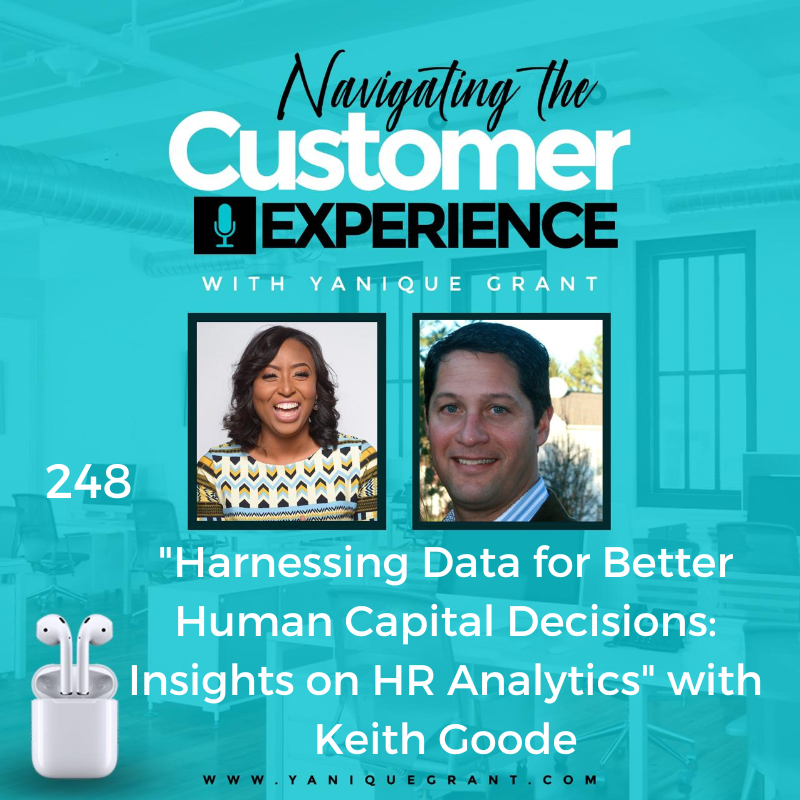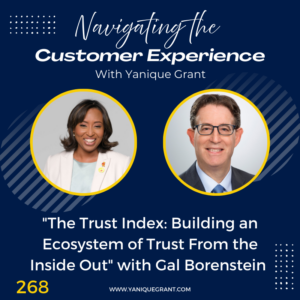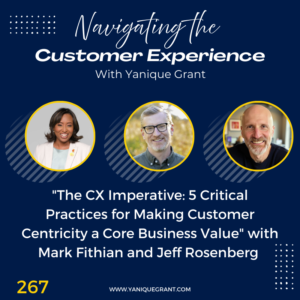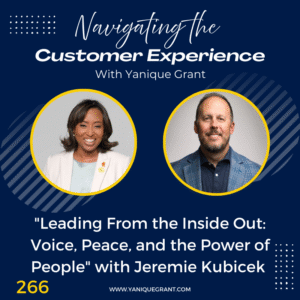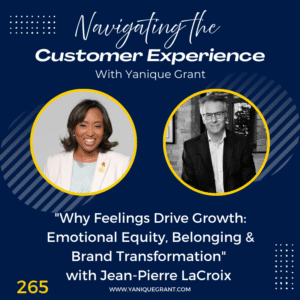Keith Goode, in the digital world is working towards growing exponentially, because we know the digital world is growing exponentially, but how is all of this data impacting an organization’s most valuable asset, their people?
Well, he believes this is an area of immense opportunity, and it is the primary reason that he joined ZeroedIn Technologies. Their goal is to transform HR, talent and business data into actionable workforce intelligence used to make better, faster and more informed decisions.
He shares in his clients’ excitement of the work that he does with them, the valuable information to decision makers from their once untapped data often stored across a wide range of systems. With over 20 years delivering human capital management and business intelligence solutions, it is exciting to utilize tools and techniques such as Data Mining, Collective Listening, Machine Learning and Predictive Modeling in a platform that solves real world HR and business issues.
Questions
· So, we always like to give our guests an opportunity to share a little bit about their journey, how you got from where you were to where you are today.
· So, can you share a little bit about your organization, the one that you’re currently engaged working with? What do they do? What value are they adding to our planet?
· Could you share with our listeners, maybe one or two success stories? You don’t have to mention the company’s name, just kind of talk generally, just to kind of give us an example of how that works.
· I kind of wanted you to share with us a little bit about what are your insights. What have you seen? Are there any trends that you see may be coming for 2025, and beyond, as it relates to the human merging with the technology and also the data intelligence.
· Now, Keith, can you also share with our listeners, what’s the one online resource, tool, website or application that you absolutely cannot live without in your business?
· Can you also share with our listeners maybe one or two books that you’ve read, it could be a book that you read a very long time ago, or even one that you’ve read recently, but it has had a positive impact on you.
· Can you also tell our listeners what’s the one thing that’s going on in your life right now that you’re really excited about, either something you’re working on to develop yourself or your people.
· Where can listeners find you online?
· Now, before we wrap our episodes up, we always like to ask our guests, do you have a quote or saying that during times of adversity or challenge, you’ll tend to revert to this quote if for any reason you get derailed or you get off track, the quote kind of helps to get you back on track.
Highlights
Keith’s Journey
Me: So, we always like to give our guests an opportunity to share a little bit about their journey, how you got from where you were to where you are today?
Keith shared that his background is in information management systems, so he’s always been on the technical side. Spent a lot of time managing organizations in their reporting, and he’s also spent a lot of time in HR space, whether it’s with benefits, learning, payroll, core HR, so he’s been able to put those items together where he can bring together reporting and that understanding of people in HR to help them make better decisions regarding the people using historical data.
About ZeroedIn Technologies
Me: So, can you share a little bit about your organization, the one that you’re currently engaged working with? What do they do? What value are they adding to our planet?
Keith shared that their organization started many years ago, so their founder, he’s known since the early 90s, and they worked together developing learning management system back then. And what they’ve always found is that in the HR space, there are very siloed solutions, whether, again, you’re talking about learning or you’re talking about core HR, you’re talking about benefits and pay. And what they found is that all these systems are data rich but information poor.
They’ll be able to provide a lot of information about that core subject, but when it comes to managing your people, you need to have that information spread across a wider range of data. So, that was the need for developing ZeroedIn. And what they are able to do is again, bring data from multiple different siloed systems and then present it as a single point of truth regarding how employees are interacting within the organization.
Examples of Success Stories
Me: So, in terms of bringing all of the data together, and maybe some of your top successes in working with different clients and trying to help them to understand their data, to manifest it in such a way, or collate it in such a way that it can maybe be repurposed for designing a better customer experience, designing a better journey for the customer, even creating better solutions. Could you share with our listeners, maybe one or two success stories? You don’t have to mention the company’s name, just kind of talk generally, just to kind of give us an example of how that works.
Keith shared that some great examples, they’ve worked with organizations that had people working outside and doing a lot of work outside. So, not only were they able to work with an organization’s core HR information, they were able to also correlate that information to weather data. So, imagine being able to understand how your people are working, how they’re performing, what types of certifications they have, but also correlating that to performance. And because they’re working outside, they’re able to look at weather patterns and figuring out what people can be doing and how they can be more efficient based off of the weather patterns, and then using that as correlation and reporting.
They’ve also done a lot of work in the retail space, so organizations, again, have people that work in retail, organizations that are typically seasonal, their turnovers are high, but what they’re able to do is pull that information and correlate it with actual performance figures, such as sales at the store level, hourly sales rates. So, now you have a better picture of those people in the stores and in the retail population that are performing well versus maybe those that haven’t. And you can look at those factors that might be contributing to that. Not only that, you can provide that information to store managers, district managers, regional managers, and then they can better prioritize who should get preferred hours, who needs to have a little bit more coaching, who needs to have a little bit more training in order to maximize potential sales output.
Trends for 2025 as it Relates to the Human Merging with Technologies and Also Data Intelligence
Me: So, you spoke a little bit, or I should say, I mentioned a bit about human capital intelligence when we first started the podcast. And I kind of want to spend a little bit of time and talk about the human injection, the human part of customer experience, because I know that data is driving a lot of decisions in organizations, and they should be driven definitely by the data, because the customers data definitely can guide us in the right direction. But the human interaction, I believe is still very critical to customer experience regardless of the industry that you are in. And so, I kind of wanted you to share with us a little bit about what are your insights. What have you seen? Are there any trends that you see may be coming for 2025, and beyond, as it relates to the human merging with the technology and also the data intelligence.
Keith shared that he thinks there are two main areas. First, we mentioned at the beginning what we like to call collective listening, and it’s that aspect where we talked a lot about that quantitative data that comes from those different systems, but there’s a whole aspect of using qualitative data, information, say, from surveys, information from pulse, how are things going? Information that might even come from communications, who’s communicating to whom? All that is digitized, and all that is part of the organization’s assets. So, they’ve been able to correlate that quantitative information that comes from systems with that qualitative information that comes from the voice of the people in order to help understand how things are working in the organization. So, that’s one.
He thinks, second where the people will be moving towards, especially in the HR, is the adoption of artificial intelligence. And that can become from two different ways. First of all, you’ve got these great AI models, or they also called machine learning models, that can look at historical data and come up with fantastic predictions based off that historical data.
Secondly, in the AI space, there’s what we call large language models, which they understand language just like they understand images, just like they understand sound. These models are able to understand language and produce fantastic results. So, what they’ve been able to do is work with their clients data, embed these technology within their solution so that, let’s suppose a manager or someone in HR is looking at a graph or a dashboard, and first thing is saying, “Yeah, that’s a great looking dashboard. It’s got great colors and all the organizations.”
But do they really understand what the data is showing them?
Do they really know you know how to read that graph, and what potential they could do with that information?
So, they’re able to take that data that was used to populate that graph and send it to an AI model, a large language model with specific prompts like, what do you see that’s unique about this data set?
What are the highs?
What are the lows?
How is this trending?
So, the AI model can do that analysis of that data and present it back with specific prompts like, “Well, give us some ideas of what actions could be taken from this data.” And it’s absolutely fantastic on what being able to return. So, imagine you’re looking at the graph, but then reading a whole paragraph that’s describing what that data is and what actions could come from that, and it’s a fascinating world. So, users don’t have to be technologists, they don’t have to be data scientists to understand what’s being presented to them from that historical data in specialized graphs.
Me: So, artificial intelligence can do so much, just listening to you speaking just now, I’m thinking to myself, in another couple of years, is it that people won’t really be using any of their brain power? Because, do we really need to do any critical thinking, because, it’s just going to give you all the information that you need, and it could misguide you. It could tell you something that just doesn’t exist. So, where is that line that you draw that you say, okay, yes, this is what the system says, but in my heart or my gut is telling me that this is just not the way it is.
Keith shared that he’s glad Yanique asked, because he’s a realistic and he’s also optimistic, and he thinks it’s going to just make us better. Let’s not be afraid from it, let’s not run from it, but let’s use it to make our own talents even better, right? For example, using that information that comes from that AI model to even make better decisions, to take that a step further to say, “Oh, that’s giving me some ideas over here. Let me run with that, explore that more.”
So, he thinks there’s opportunity, he doesn’t think it takes away from our job. Yes, you could say, “Yep. AI presented a really nice results here. I’m done. I don’t have to do anything more.” Or you could say, “Wow, that’s really interesting. Let’s go further. Let me use my insights, my historical aspects.” And then merge it with that information, see where it can go further. So, he doesn’t look at it as an end game. He looks at it as just a starting point.
App, Website or Tool that Keith Absolutely Can’t Live Without in His Business
When asked about online resource that he can’t live without in his business, Keith shared that he’d have to say their own. They utilize their own platforms internally. They use it to generate correlations all the time. It’s easy to use, it’s easy to pull in data and work with it. And there’s not a day that goes by where he doesn’t find it fascinating to be able to bring in core sets of information for their clients and pull nuggets of valuable information that they’re going to move forward with it. So, he knows that sounds corny, but it would have to say what they’ve currently developed.
Me: You don’t find a lot of guests actually have so much confidence in their own internal systems that they’re like, Yeah, I can’t live without my system. I mean, like, realistically, do you think if you left ZeroedIn, you would still be using that system, even if you were doing consulting work, it’s that good?
Keith shared that thought about that and what they do in the industry, he would be miserable without it. If he left his job and he went to a large organization says, “Hey Keith, we want you to head up our HR analytics strategy and so forth.” Be like, great. The first thing he does is look for a platform, and because they only have three choices. You either develop it yourself or you go to a third-party platform and say, one of their competitors, but it’s what they call Black Box Solution. He has to get his data in their format, and then he gets their metrics the way they’ve just prescribed them to him.
Well, suppose his business is unique. Suppose he has a unique population, and suppose that Black Box, he doesn’t know what’s going into, he doesn’t know how those metrics are established, and he wants to create his own. Well, that’s where they fit in. They’re kind of in the middle between the Black Box Solution and having to do everything yourself. And so, if he had that job, he’d be really disappointed, because without them, he doesn’t know what he would do.
Books that Have Had the Biggest Impact on Keith
When asked about books that have a positive impact, Keith shared that he has to be honest, it would be the Bible. He reads it pretty regularly, and after 2000 years, it’s just amazing the insights that you can still gain from it and how relevant it can be. So, yeah, I’d put that right out.
What Keith is Really Excited About Now!
When asked about something that’s he really excited, Keith shared that he has two daughters that are in their mid and early 20s. They’ve all graduated, and they’re now working in their own career. One is a teacher; one works for an accounting organization. And it is so wonderful to see young people engaged and to see them at this time in their life, so eager to start the life, to be independent is fantastic. It gives him hope for the younger generation to see them working and developing value for their organizations is great. To see them in a field and fields that really, he believes they were built for. His one daughter works with in a very difficult school system, and she loves it, she wouldn’t trade it for anywhere else. It’s like she’s in the right spot. So, he thinks what’s fascinating is to see young people today becoming independent and developing value in their own way.
Me: When you’re talking just now about your daughter working in a very difficult school system, because I do have a few friends that are teachers overseas as well, and I think one of the things that I think for any profession really, you really have to have passion for what you’re doing, like genuinely love what you’re doing, because if you don’t genuinely love it, and what happens on the day is when you just don’t have the motivation, you’re faced with obstacles, or difficult people to deal with, or systems that aren’t working the way you want them to work. I think at the end of the day, what will push you forward is that passion.
So, even in a difficult school system, when the policies and procedures might not be working for you, you’re dealing with kids who are coming from broken homes, really and truly, it’s her determination, her intrinsic, that motivation inside of her that’s pushing her every day to say, “This is what I really love. I love to help these kids. I love to see the look on their face when they’re achieving something.” And I just wish everybody could have that passion for what they’re doing.
Keith agreed, he does too. For him, it’s working with data. He knows it sounds so geekish, but if he could just sit down with all that data and build graphs and make value of it, he’s just so happy. For other people, it’s being in the right environment for their skill sets, and it’s just an amazing thing. What do they say? “If you like what you do, you never work a day in your life.”
Where can listeners find Keith online?
LinkedIn – Keith A. Goode
Website – http://www.zeroedin.com/
Media Kit – https://kitcaster.com/keith-goode/
Quote or Saying that During Times of Adversity Keith Uses
When asked about a quote or saying that he tends to revert to, Keith shared that it sounds simple, but “Don’t give up.” He’s said that to his kids all the time. Don’t give up.
Me: It’s a rough world out there, so you have to be giving yourself positive affirmations constantly. Even in my life, I recently found a really cool podcast called Mindset Mentor. I think the guy’s name is Rob Dial. There’s this hill that I have to walk up on weekends, and it’s really steep. And I’m telling you, I don’t know if it’s what he’s saying or if it’s the tone of his voice, but if I don’t hear his voice when I’m climbing that hill, I feel like I’m not going to reach to the top and be able to touch that branch and say, yes, I’ve gotten to the top of the hill.
Keith asked what would be Yanique’s saying to answer that question?
Me: I think my saying in life boils down to, “Treating others the way you would like to be treated.” It’s kind of why I started this business as a Customer Service Trainer, why I got into podcasting for customer experience. And everything that I do, I kind of take it from that perspective. Like, if you don’t want anyone shouting at you, don’t practice shouting at other people, if you don’t want anyone being difficult and not being flexible and trying to assist you and at least trying to find a solution, don’t practice doing that in your own function when you’re in your job or even at home. Just try to be very accommodating, very welcoming. Because I just believe that life is like a boomerang, and whatever you give out, it comes right back at you. You might not get it right away, but trust me, it really does come right back at you. So, I always believe that we should just treat others the way we would like to be treated.
Keith, thank you so much for jumping on our podcast today. I know we had some technical difficulties at the beginning, but we sorted that out because the video looks perfect now. And just sharing some of the great intentions that your organization has that you’re working on, the fact that you’re excited to work with data. The fact that the human capital is still a big part of the customer experience is just that the data is helping us to drive and deliver better decisions, better solutions for our customers to create that better experience. I do believe that the information that you shared with us today is of great value to our listeners, and I just want to say thank you so much for taking time out of your day to share with us.
Please connect with us on X @navigatingcx and also join our Private Facebook Community – Navigating the Customer Experience.
The ABC’s of a Fantastic Customer Experience
Grab the Freebie on Our Website – TOP 10 Online Business Resources for Small Business Owners
Do you want to pivot your online customer experience and build loyalty – get a copy of “The ABC’s of a Fantastic Customer Experience.”
The ABC’s of a Fantastic Customer Experience provides 26 easy to follow steps and techniques that helps your business to achieve success and build brand loyalty.
This Guide to Limitless, Happy and Loyal Customers will help you to strengthen your service delivery, enhance your knowledge and appreciation of the customer experience and provide tips and practical strategies that you can start implementing immediately!
This book will develop your customer service skills and sharpen your attention to detail when serving others.
Master your customer experience and develop those knock your socks off techniques that will lead to lifetime customers. Your customers will only want to work with your business and it will be your brand differentiator. It will lead to recruiters to seek you out by providing practical examples on how to deliver a winning customer service experience!

